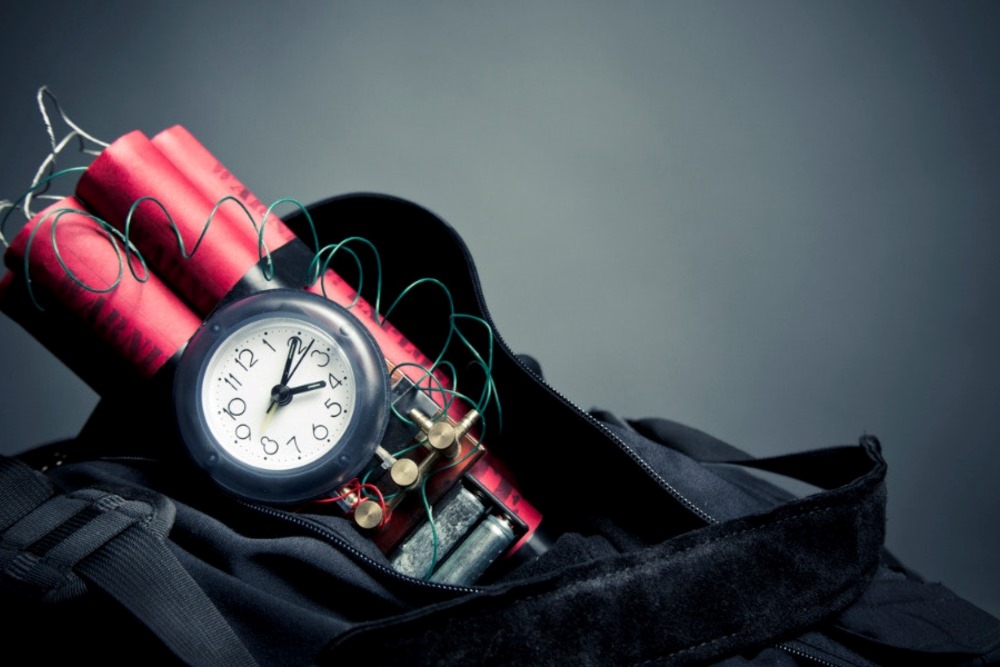
A Palestinian carrying a powerful explosive detonated prematurely in southern Tel Aviv Sunday night, killing himself instantly and wounding one person. The troubling incident has reignited Israeli concerns about the potential return of suicide terrorism.
The security services are urgently investigating the failed attack to track down the source of the explosives and detain any accomplices. The police deployed large forces in the Tel Aviv area amid fears that more terror plots may be in the works.
Hamas claimed responsibility for the attack, calling it a joint operation with Islamic Jihad. The statement warned that suicide bombings will resume if Israel continues the war in Gaza.
While there have been no suicide attacks in Israel for years, the latest scare was not an isolated incident. In 2022, a bombing at bus stops in Jerusalem killed two Israelis. In 2023, an explosive device blew up in Tel Aviv’s Yarkon Park without causing injuries.
These events demonstrated the ability of terrorists to infiltrate Israeli cities with explosives, indicating a potential capability to execute suicide attacks. The latest incident in Tel Aviv also highlighted ongoing security vulnerabilities.
Dark history revisited
For many Israelis, the latest explosion rekindled painful memories of a time when suicide bombings were a horrifying part of daily life. The 1990s and early 2000s saw Israeli cities turned into battlegrounds as cafes, buses, and nightclubs transformed into scenes of carnage.
The most infamous attacks include the Dizengoff Center bombing in 1996 that killed 13 people in the heart of Tel Aviv. Five years later, a beachfront attack at the Dolphinarium nightclub took 21 lives, mostly teenagers.
Perhaps most seared into the national psyche is the 2002 Passover massacre. As families gathered to celebrate at Netanya’s Park Hotel, their lives were shattered by a suicide attack that killed 30 Israelis and wounded over 130.
Overall, Israel was hit by some 150 suicide bombings over a period of about 15 years. These attacks claimed nearly 1,000 lives and injured thousands more.
The decline of suicide terrorism
The gradual decline in suicide attacks after the second Intifada can be attributed to several factors.
Israel’s Operation Defensive Shield in 2002 and subsequent military efforts dealt a crippling blow to terror networks in the West Bank. In parallel, the construction of a massive security barrier made it more difficult for attackers to reach urban centers.
Meanwhile, Palestinian terror groups began to distance themselves from suicide tactics, recognizing the damage such attacks inflicted in the court of global opinion. While terrorism persisted, its methods evolved.
Over time, as the IDF solidified its control over Palestinian areas, Israeli intelligence regained its footing. A web of informants and technology enabled the security services to disrupt countless plots before they could materialize.
New generation of terrorists
But now, after years of relative quiet, Israel finds itself grappling with the potential resurgence of the suicide terror threat. The war in Gaza inflamed tensions to a fever pitch, while Iran – the puppet master of regional chaos – is redoubling its efforts to spark terror within Israel’s borders.
In this frenzied atmosphere, a new generation of terrorists raised on the glory of social media and fresh grievances, may be willing to engage in the most extreme acts of violence.
As Israel confronts a potential revival of suicide terrorism, security forces race to unravel the details of the latest blast, knowing that the next bomber may not fail. The coming months will reveal whether the explosion in Tel Aviv was an isolated event or signals a dangerous trend in the ongoing conflict.
For now, as the sun sets over Tel Aviv’s coastline, life goes on. Cafes hum with conversation and beaches teem with sunbathers. But beneath the surface, a current of unease runs deep. Israel may soon find itself at a crossroads once again – hoping for a long war to end, but facing the possibility that an old nightmare may reemerge.



